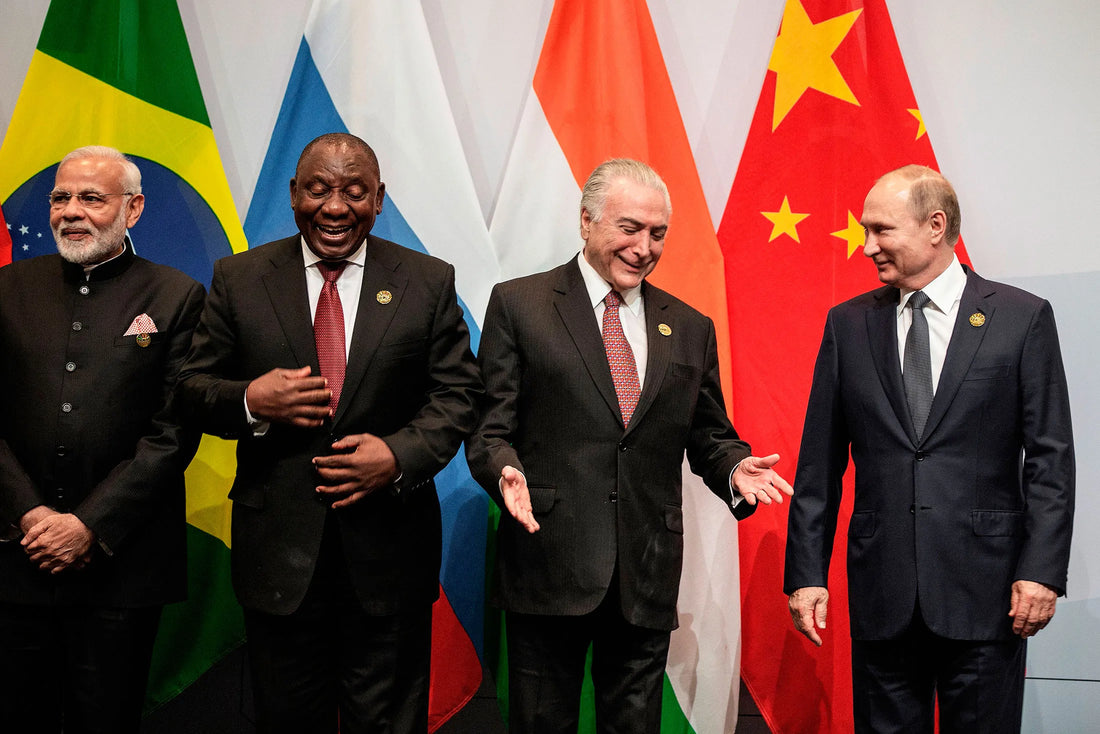BRICS: Reshaping Global Power, Trade, and Influence
Dr. Lena PetrovaBRICS' expansion reshapes global power, trade, and influence, challenging Western dominance and creating new economic opportunities.

The BRICS alliance, initially formed by Brazil, Russia, India, and China, is undergoing a significant transformation with the inclusion of new members and a growing focus on challenging the Western-dominated world order. This expansion marks a pivotal moment in global geopolitics, potentially reshaping trade dynamics, economic power balances, and international relations.
As the bloc evolves, its impact on global markets and the strategies of multinational corporations will be substantial.
Highlights
- BRICS now represents over 40% of the world's population and a third of global economic growth.
- The inclusion of new members like Iran and the UAE gives BRICS significant control over commodity markets, especially oil.
- BRICS is actively promoting de-dollarization and creating alternative financial institutions to challenge Western dominance.
Read More: Xbox to be like Office: Everywhere, says Nadella
Top 5 Key Insights
• Expanded Economic Influence: The BRICS nations' combined GDP, adjusted for purchasing power parity, has surpassed that of the G7 economies. By 2030, BRICS is projected to account for 36.3% of global GDP at PPP, while the G7's share is expected to decline to 26.3%. This shift signifies a major realignment of economic power on the world stage.
• Commodities Powerhouse: With the addition of Iran, the UAE, and potentially Saudi Arabia, the BRICS group could control nearly half of global oil production and account for an estimated 35% of total oil consumption. This concentration of resources gives BRICS considerable leverage in global energy markets.
• Trade Diversification: BRICS is actively working to reduce reliance on the US dollar and Western financial systems. Efforts include establishing a BRICS Payment System, promoting trade in local currencies, and developing alternative financial institutions like the New Development Bank (NDB).
• Geopolitical Counterweight: China and Russia are actively positioning BRICS as a counterweight to Western hegemony, advocating for a multipolar world order and a greater voice for developing countries. This ambition is evident in the bloc's expansion and its efforts to reform global institutions like the UN Security Council, IMF, and World Bank.
• Internal Challenges: Despite its growing influence, BRICS faces internal challenges, including diverse political ideologies, border disputes, and rivalries among member states. These divisions could hinder consensus on political issues and dilute the bloc's ability to advance its interests effectively.
Read More: Jessica Alba's Net Worth: Acting, Business & Real Estate
Expert Insights
World Economic Forum: The expansion of BRICS is also advancing new pathways of multilateralism. This includes the establishment of new institutions that could challenge existing multilateral organizations such as the Group of Seven (G7) and the World Bank.
AInvest: BRICS' response to U. S. tariffs underscores a broader geopolitical shift: the erosion of American economic hegemony and the rise of alternative systems. While near-term volatility is inevitable, investors who view BRICS through a long-term lens—prioritizing sectors tied to self-reliance and intra-block growth—may capture asymmetric returns.
Read More: AI Search Engines Favor Less Popular Sources: Study
Wrap Up
The BRICS alliance is evolving into a significant force in the global landscape, driven by its expanding membership, economic power, and ambition to challenge the existing world order. While internal divisions and external pressures remain, the bloc's growing influence is undeniable.
This transformation presents both opportunities and challenges for businesses, investors, and policymakers as they navigate the shifting dynamics of international relations and global markets.
Read More: Trump's $80B Nuclear Reactor Plan Fuels AI Ambitions
Author
Dr. Lena Petrova - Dr. Lena Petrova is a political scientist and geopolitical analyst based in Berlin, specializing in international relations and governance. Her contributions to Enlightnr offer deep insights into how political dynamics shape the world.
More to Explore
- Choosing a selection results in a full page refresh.
- Opens in a new window.




